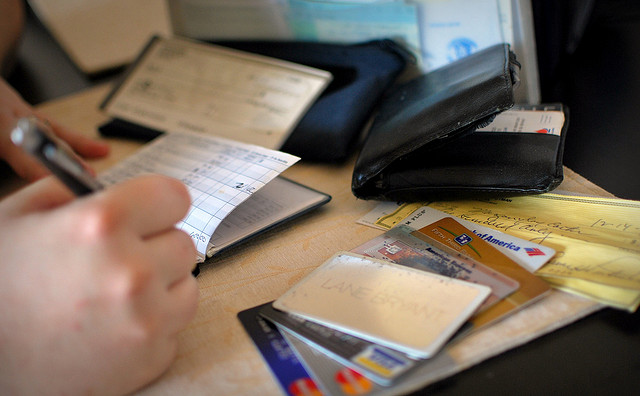Contents
Credit Reporting Consumer Protections
This is a guest post by Allan R. Bloomfield, a bankruptcy lawyer practicing in Queens. His offices are located at: 118-21 Queens Blvd., #617, Forest Hills, NY 11375.

Credit Information Must be Accurate
Any company that gathers consumer credit information has to do so in an accurate manner, make available reports of the information they have to individuals and provide for a process by which inaccurate credit information can be corrected. You can get free reports from each company once per year, including from the smaller companies. If you find an error, you have the right to have it corrected. The best way to make such corrections is to write a letter addressed to both the bank or company that reported the information and to the credit reporting agency.
When the Credit Reporting Agency Receives Your Letter
When the credit reporting agency receives your letter (and it should be a letter, not a telephone call) they have a certain period of time within which to investigate the information. If they do not complete the investigation in time, they must remove the information from your file until they are able to verify it or correct it. (This, by the way, is the method by which credit repair companies are able to “improve” your credit. None of the credit agencies are able to verify the information within the allotted time and they then remove it from your file. However, they all eventually verify the information and it comes right back onto the credit report, with a notation that the consumer filed a protest. It looks terrible to have a credit report where each and every one of your accounts shows that it was objected to.)
Correcting Mistakes on Your Credit
Credit repair companies will also help you correct real mistakes, but this is something most people can do by themselves with a simple letter. Things to look for when you review your credit report include whether accounts that are not yours are included on your report. This often happens from mistakes made by the banks reporting to the credit agencies. If one digit of your social security number is entered incorrectly, that account will end up in the wrong credit file. If you have a common name, or are a Junior or a Senior, you may have accounts in your file that are not yours. And, you may be the victim of identity theft. There are various claims about the amount of bad information in credit files, but by getting your reports on a regular basis, you can stay safer.
Annualcreditreport.com
The best way to get your reports from the three major agencies is to go to annualcreditreport.com, a web site maintained by the three agencies. The reports you will get here are better than the kind of report you might get at one of the free sites that combine the three reports on one report. When this combining is done, a lot of detail is left off and you will have used up your annual free report from the agency.
Paying For Your Credit Score
Unfortunately, while you can get free copies of your credit reports, if you want to know your credit score, you will have to pay. Each of the three big agencies maintains their own credit score for you based on a system that they do not reveal, with the score being based on the information in the file they maintain on you. Most credit decisions are based simply on this score. When you apply for a credit card or a car loan, it is usually the score alone that determines whether you are approved. While the methods that are used to arrive at the score are a secret, there are many web sites and books that have figured out much of the process that goes into determining the score and you can learn how to improve your score by consulting them.
The Bottom Line
Having good credit is important in today’s world and the way your credit is reported to those with whom you wish to do business is regulated by federal law. It is important to know how to make sure your credit file is accurate.

Leave a Reply